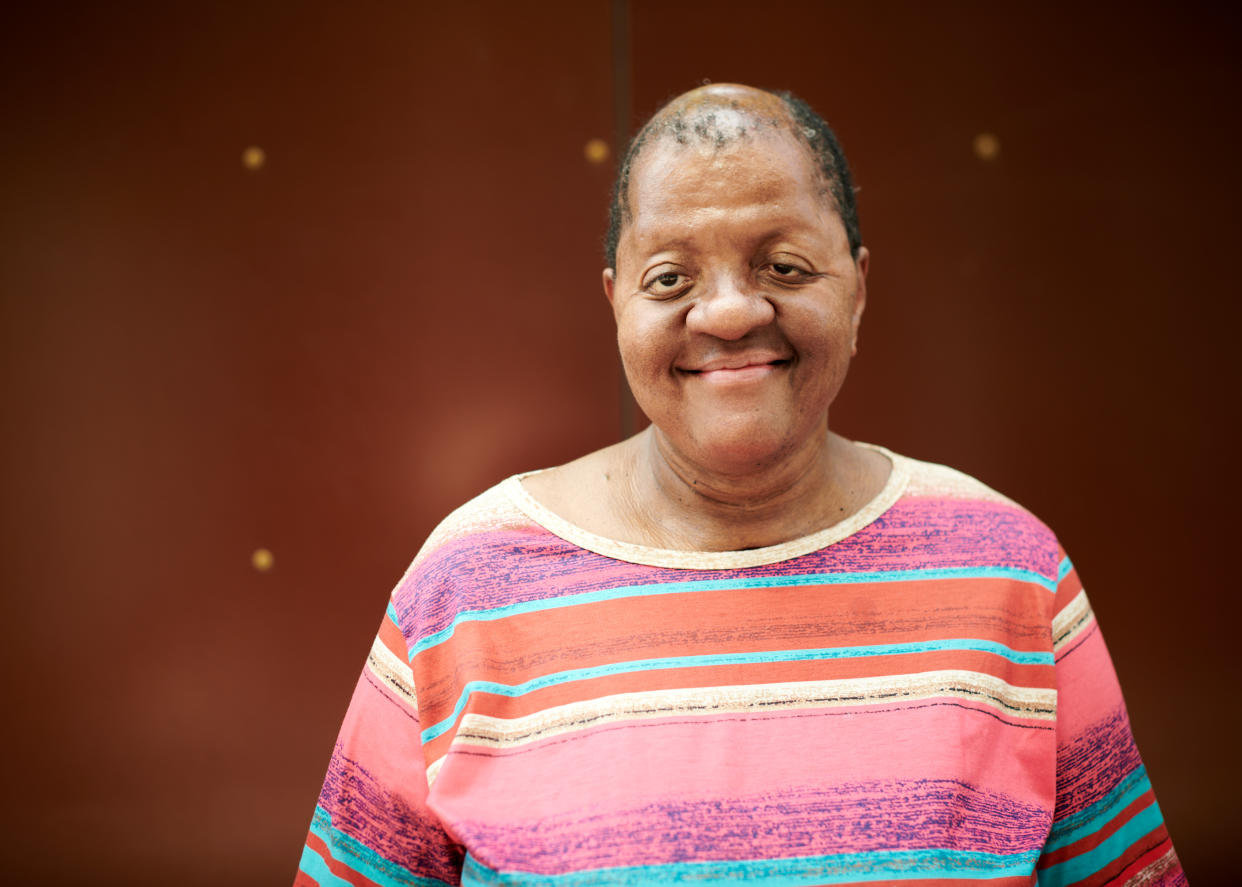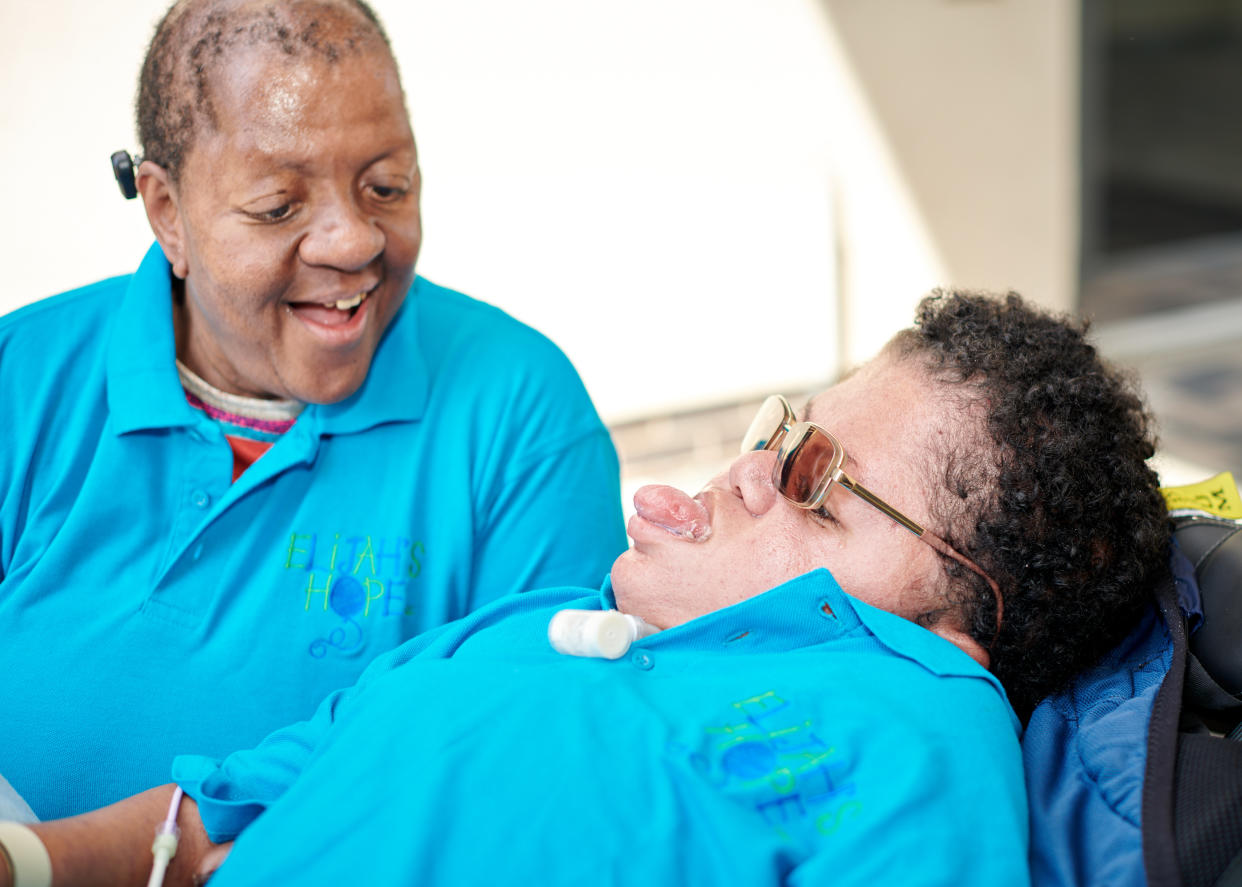"You can let life bury you - or you can work to recover and repair"

When Kaddy Thomas was born in 1968, the doctors at the hospital realised immediately that something was wrong.
The newborn baby’s skull was misshapen, her eye sockets were more widely spaced and shallower than usual and her hands and feet showed signs of webbing.
"They labelled me as ‘severely mentally retarded’, which was the term for ‘severe learning difficulties’ back then - but it must have been a real shock for my mother," says Kaddy, now 53, who lives near Bristol.
"She was only 22 and from the Gambia and found herself giving birth in a strange country with a new child with all these ‘disabilities’.
"I don’t think she knew how to cope. From what I know, she kept me for about twelve months before abandoning me into the care system."
As Kaddy was moved from hospital to residential care and foster homes, it soon became clear that the doctors at the hospital had been very wrong.
Although the little girl did indeed have Apert syndrome, a physical disability which affects around one in every 65,000 newborns worldwide, her mental capacity was completely unaffected.
Apert syndrome is a genetic condition which causes the seams between the skull bones to close earlier than normal, changing the shape of the head. It can also affect the hands and feet.

Bright, confident and kind, Kaddy was soon looking after other children in her care home and went on to have several careers in catering and the charity sector.
Read more: Woman dubbed 'super teacher' by her pupils after being fitted with a bionic arm
"There are often misunderstandings about the condition, especially from those around you," says Kaddy.
"Because of the way I look, I get stared at a lot, or people try to avoid me. If I’m walking down the street and someone is doing a questionnaire, they’ll never ask me for my opinion.
"Both adults and children stare and my response is often to stare right back at them. Sometimes, children will ask me questions – which I don’t mind – as I’d rather be open and upfront with them.
"Essentially, it’s about taking people at face value. We live in a society where, unfortunately, someone will look at you and not want to include you simply because of the way you appear on the outside.
"It’s important for me to show people with Apert’s that their condition must not hold them back. They do anything they set their hearts and minds to, but other people need to be kind for that to happen."
In this, Apert's Awareness Month (June) Kaddy’s determination to highlight the prejudice faced by those with any kind of deformity, is strengthened by the fact that her son, Elijah, now 15, also has Apert syndrome.

The disorder, which is characterised by the misshapen skull and face, affects around 350 newborns in the UK every year.
Sadly, when Elijah was only 18 months old, he suffered brain damage as a result of a complication from surgery and now needs specialist 24-hour care.
But that has only strengthened Kaddy’s resolve to make a difference – she founded the not-for-profit organisation Elijah’s Hope to help those in a similar position to her family.
"I knew there was a 50/50 chance I could pass it onto my baby but there was a risk of miscarriage with the test that could prove it and so I didn’t take it, because I knew without any doubt that I wanted this baby,"she says.
"When he was born and it turned out he did have Apert’s there was a moment I felt: ‘Oh no…’ but as long as people with this condition get care and support, they can lead the best lives possible."
"Elijah is an amazing boy who is turning now into a young man and I can’t quite believe it. He has a wonderful sense of humour, he’s resilient and brave.
"He communicates non-verbally and will clearly tell you when he’s not happy about something.

"If he’s watching one of his favourite Marvel films or a documentary or even listening to an audiobook and someone goes into his room when he doesn’t want them there, he’ll give such a glare that you’re no doubt that he wants you to get out."
Elijah attends a specialist school but like most teenagers, he loves trips to the cinema, watching the rugby or simply day trips out to the beach where he can enjoy the sunshine and people-watch.
"There have been times in our life that have been emotionally traumatic and I wouldn’t want to relive them ever again," says Kaddy. "As a single parent, it’s been a rollercoaster of ups and downs.
"But we want to show that Apert’s doesn’t have to hold you back. No matter what you go through, you can either choose to be buried by it or you can work to recover and repair.
"That’s what I choose to do both for myself, my son and others who are affected by it."
For more information: elijahshopeforapert.org.uk
Watch: Toddler with rare condition sits up for first time



